LONDON: Just weeks after Lebanon formed its first government in more than two years, offering the crisis-wracked country a glimmer of hope, a decision to block commercial flights between Beirut and Tehran threatens renewed instability.
On Feb. 13, Lebanon blocked an Iranian plane from landing at Rafic Hariri International Airport after Israel accused Iran’s Islamic Revolutionary Guard Corps of using civilian commercial flights to smuggle funding to Hezbollah.
Tehran quickly retaliated by blocking Lebanese flights.
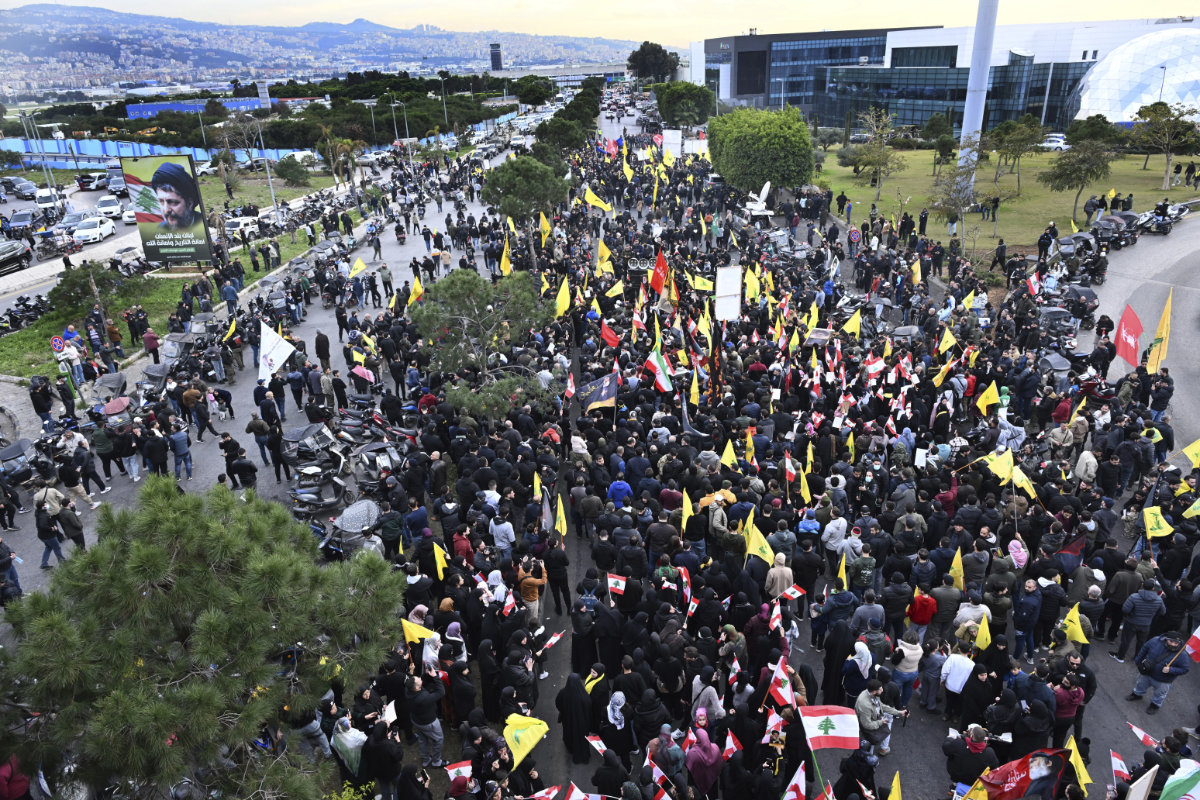
Hezbollah supporters protest near Beirut's international airport on Feb. 15, 2025. against Lebanon's decision to revoke permission for an Iranian carrier after Israel accused Iran of smuggling cash to Hezbollah. (AP Photo)
The timing of the spat makes it especially noxious. Lebanon is expected to receive tens of thousands of visitors on Sunday for the funeral of Hezbollah’s late chief, Hassan Nasrallah, who was killed in an Israeli airstrike on Sept. 27.
Lebanon’s ban on Iranian flights sparked protests among Hezbollah supporters, who blocked the road to the airport, clashed with the Lebanese army, and even attacked a convoy carrying UN peacekeepers, torching a vehicle and injuring two.
Makram Rabah, an assistant professor at the American University of Beirut, believes the new Lebanese government’s decision to block Iranian flights goes beyond efforts to combat the smuggling of illicit funds.
“I genuinely believe that this is not only a matter of smuggling money, which the Iranian Revolutionary Guard is trying to do — there are also weapons involved,” he told Arab News.
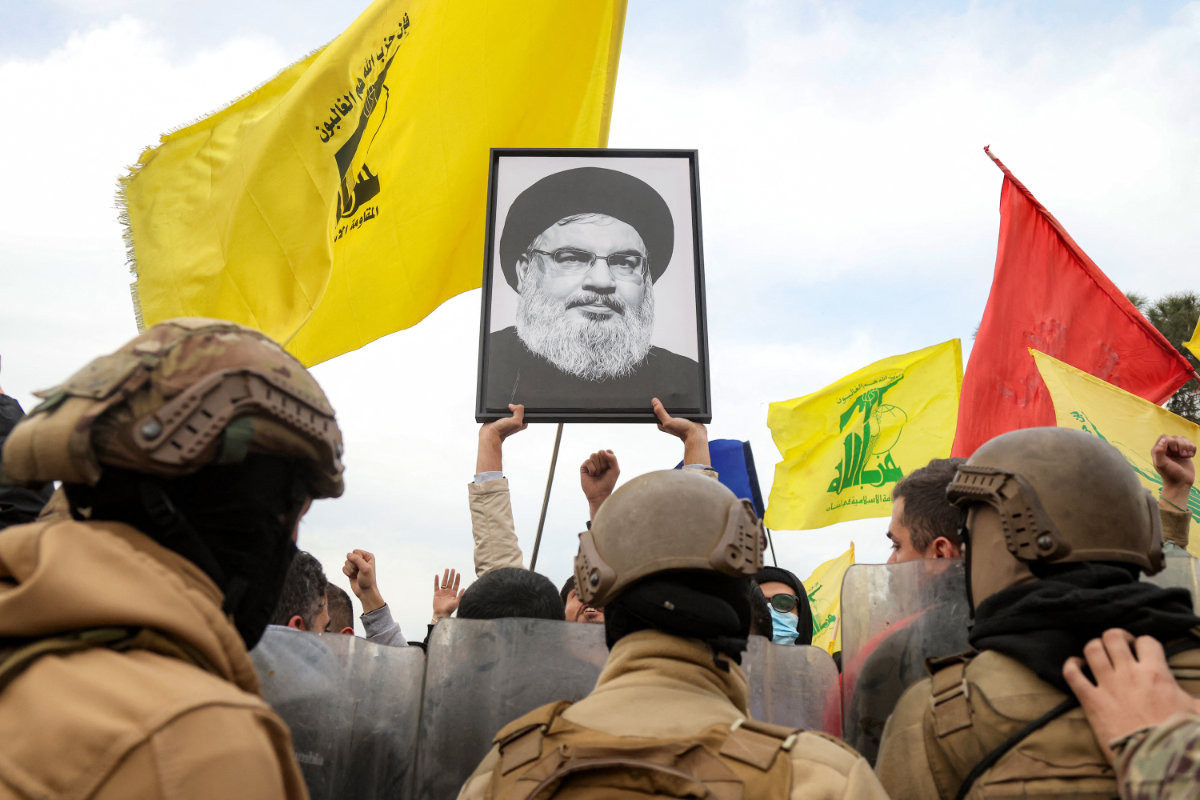
Hezbollah protesters with a framed portrait of their slain leader Hassan Nasrallah during a rally along the road to Beirut International Airport on February 15, 2025. (AFP)
“The Lebanese authorities have been urged by the international community, particularly the US, to take a firm stand on this.”
Iranian flights landing in Beirut were already subject to strict inspections, which have also been extended to flights arriving from Iraq to help prevent illicit funds from reaching Hezbollah via Iran’s neighbor, the Asharq Al-Awsat newspaper reported.
Earlier this month, Iraqi Airways canceled a scheduled flight from Baghdad, with Beirut airport sources citing either a protest against the heightened security measures or logistical issues.

File photo showing a Mahan Air flight at the airport in Kabul on September 15, 2021. (AFP)
The decision came after an Iranian carrier underwent rigorous security checks at Beirut airport last month over suspicions it was transporting funds destined for Hezbollah.
The measures “are necessary given the recent war in Lebanon and Lebanon’s commitment to security protocols agreed upon with the US,” which helped broker the Nov. 27 ceasefire between Israel and Hezbollah, an airport security source told Asharq Al-Awsat.
These are “preventative measures” designed to stop Lebanon’s only international airport from becoming a potential target of Israeli attacks, the source added.
Measures such as these might also be a reflection of the new political realities in Lebanon since Hezbollah’s drubbing by Israel in their year-long conflict, which saw the militia’s leadership gutted and its once formidable arsenal greatly depleted.
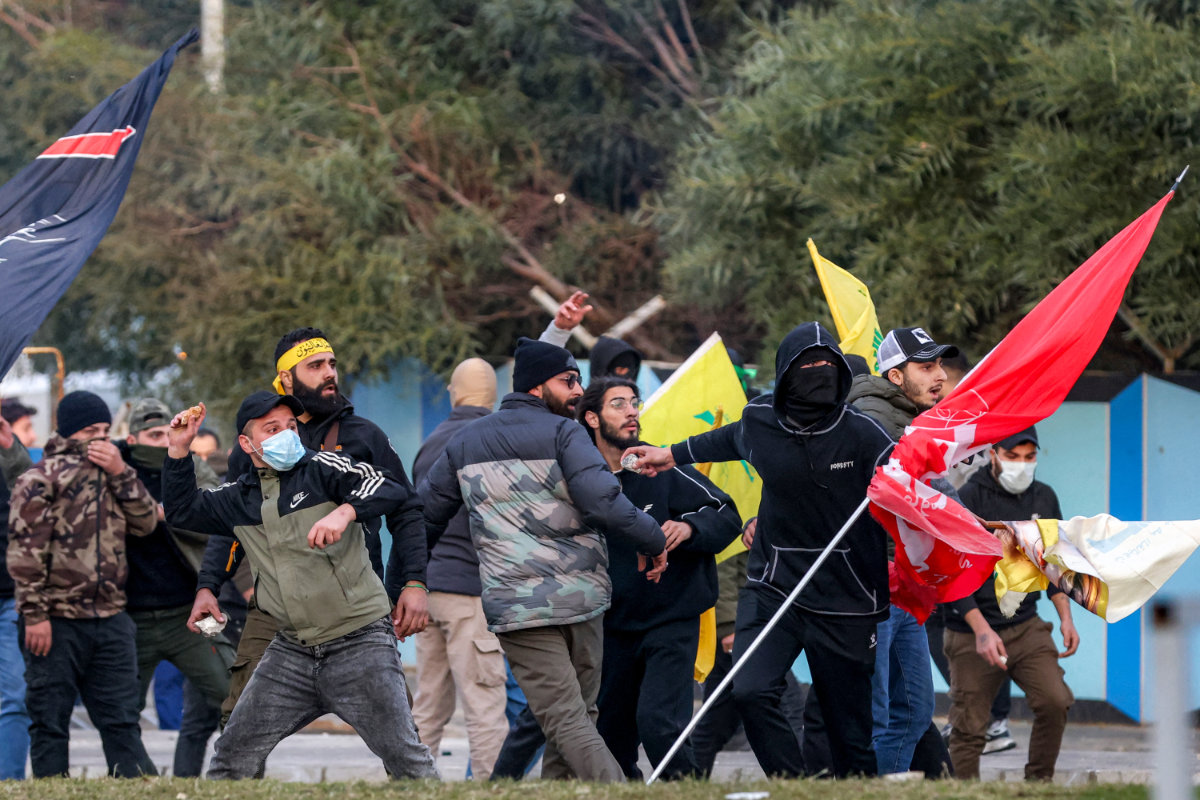
Supporters of Lebanese Shiite Islamist movement Hezbollah throw stones during clashes with Lebanese Army riot-control forces along the road to Beirut's Rafic Hariri International Airport on February 15, 2025. (AFP)
Yeghia Tashjian, regional and international affairs cluster coordinator at the Issam Fares Institute for Public Policy and International Affairs at the American University of Beirut, believes Lebanon has “entered a new era” since the ceasefire.
“Unfortunately, few people are aware of the consequences and the steps that would have come after the signing of the Nov. 27 ceasefire agreement,” Tashjian told Arab News.
“Lebanon has entered a new era where the government is under immense pressure from the US and Israel. There is a feeling that the reconstruction and the Western aid will be conditioned with reforms and the full implementation of Resolution 1701.”
The US-brokered ceasefire demanded the implementation of UN Security Council Resolution 1701, which was adopted to end the 2006 war between Israel and Hezbollah. It called for Hezbollah to move north of the Litani River and for the Lebanese army and UN peacekeepers to deploy in the south.

The Nov. 27 deal also required Israeli troops to withdraw from Lebanon within 60 days. However, many remain in border towns. Moreover, the Armed Conflict Location and Event Data Project recorded 330 airstrikes and shelling incidents by Israel between Nov. 27 and Jan. 10.
Resolution 1701 had maintained relative peace in the region until the Hamas-led Oct. 7, 2023, attack on southern Israel triggered the war in Gaza. In support of its Hamas allies, Hezbollah began firing rockets into northern Israel, igniting cross-border clashes that soon escalated.
Over the course of the conflict, Israel told Iranian and Iraqi airlines not to land in Beirut, as they were suspected of transporting funds and weapons to Hezbollah. These airlines initially compiled but resumed flights after the Nov. 27 ceasefire.
However, following a warning last week from the US that Israel might shoot down Iranian commercial carriers entering Lebanese airspace, Beirut banned two Mahan Air flights, Lebanese security officials told the AFP news agency.
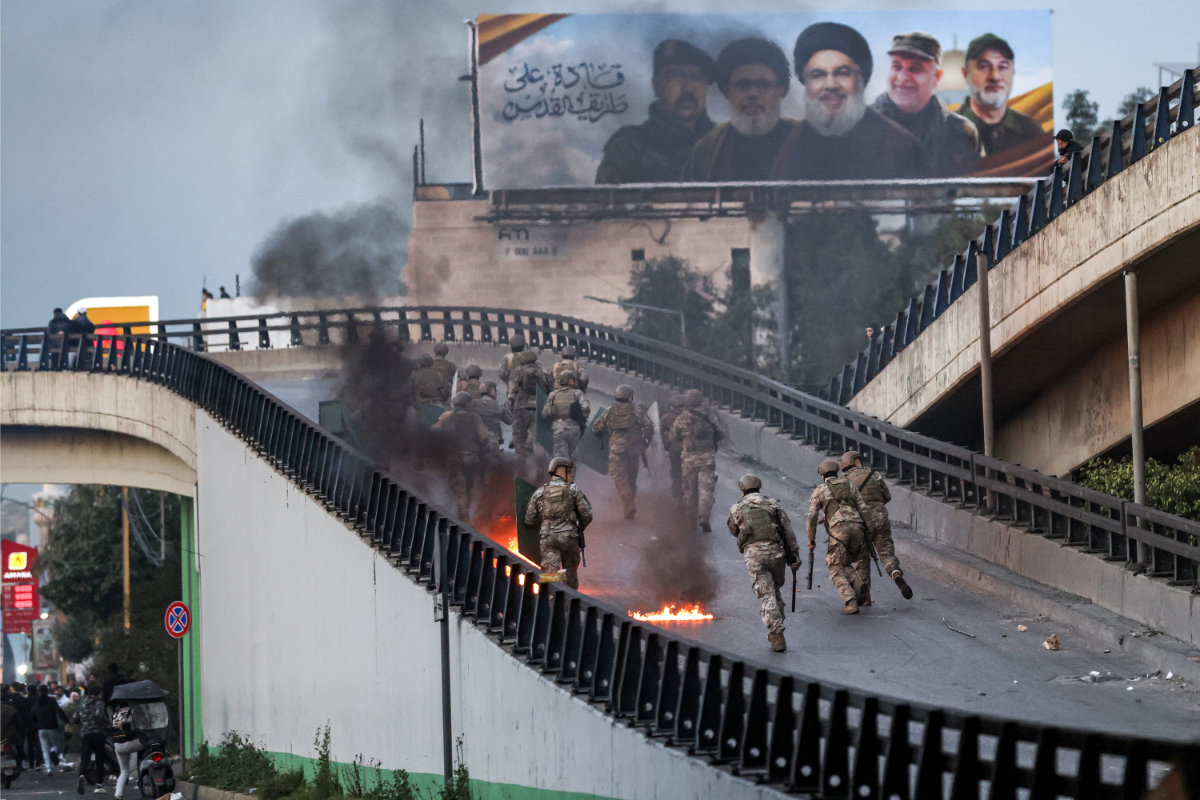
Lebanese Army riot-control forces move to disperse Hezbollah protesters trying to block the road to Beirut's international airport on February 15, 2025.(AFP)
Tehran condemned the Israeli threats as a “violation of international law” and on Feb. 14 called on the International Civil Aviation Organization to “stop Israel’s dangerous behavior against the safety and security of civil aviation.”
Despite calls from Hezbollah and Iran to reverse the ban, Lebanese authorities on Monday took the measures a step further, indefinitely extending the suspension of flights to and from Iran, which was originally set to be lifted on Feb. 18, citing Israeli threats to bomb Beirut airport.
Tashjian of the Issam Fares Institute believes the ban should be viewed in the broader context of the effort to dismantle Hezbollah and other non-state armed groups in Lebanon.
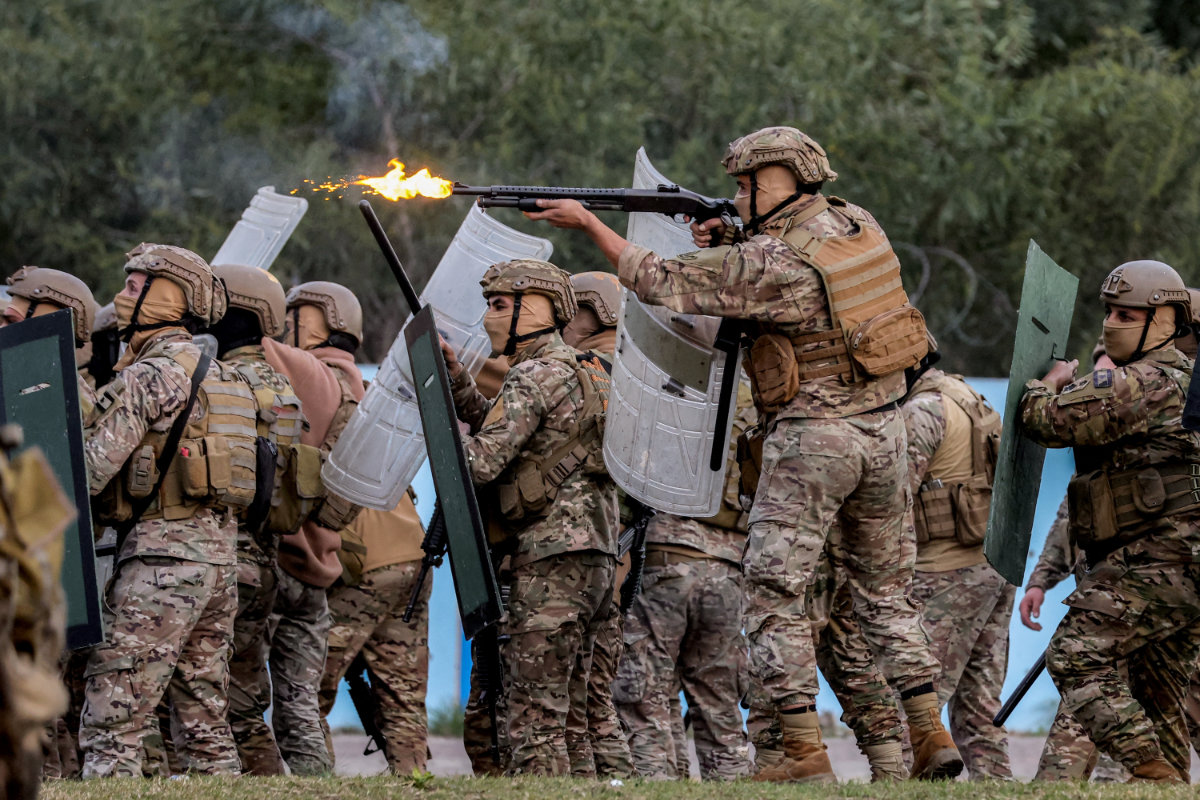
A member of the Lebanese Army riot-control forces fires a shotgun as they try to disperse a Hezbollah-organized attempt to block the road to Beirut's Rafic Hariri International Airport on Feb. 15, 2025. (AFP)
“The implementation of 1701 does not only address the area south of the Litani River as many think,” he said. “Reading the new agreement carefully, especially the first paragraph, it is clear that any kind of unauthorized force has to be dismantled.
“It is within this context that pressure on Hezbollah is growing. In the coming weeks, we may see additional pressure mainly on micro-finance enterprises affiliated with Hezbollah.”
Lebanese academic and analyst Rabah says the new government in Beirut “needs to clean up its act and be more aggressive in defending its sovereignty.
“The airport issue and its entanglement in the regional power struggle is just one phase,” he said, adding that “there will be other ways to challenge Hezbollah, and Hezbollah will definitely hit back by challenging the state.
“This is a matter of Hezbollah as well as (Parliament Speaker) Nabih Berri and Haraket Amal (the Amal Movement) recognizing that their weapons are no longer an option — and this is basically one of the most difficult challenges.”
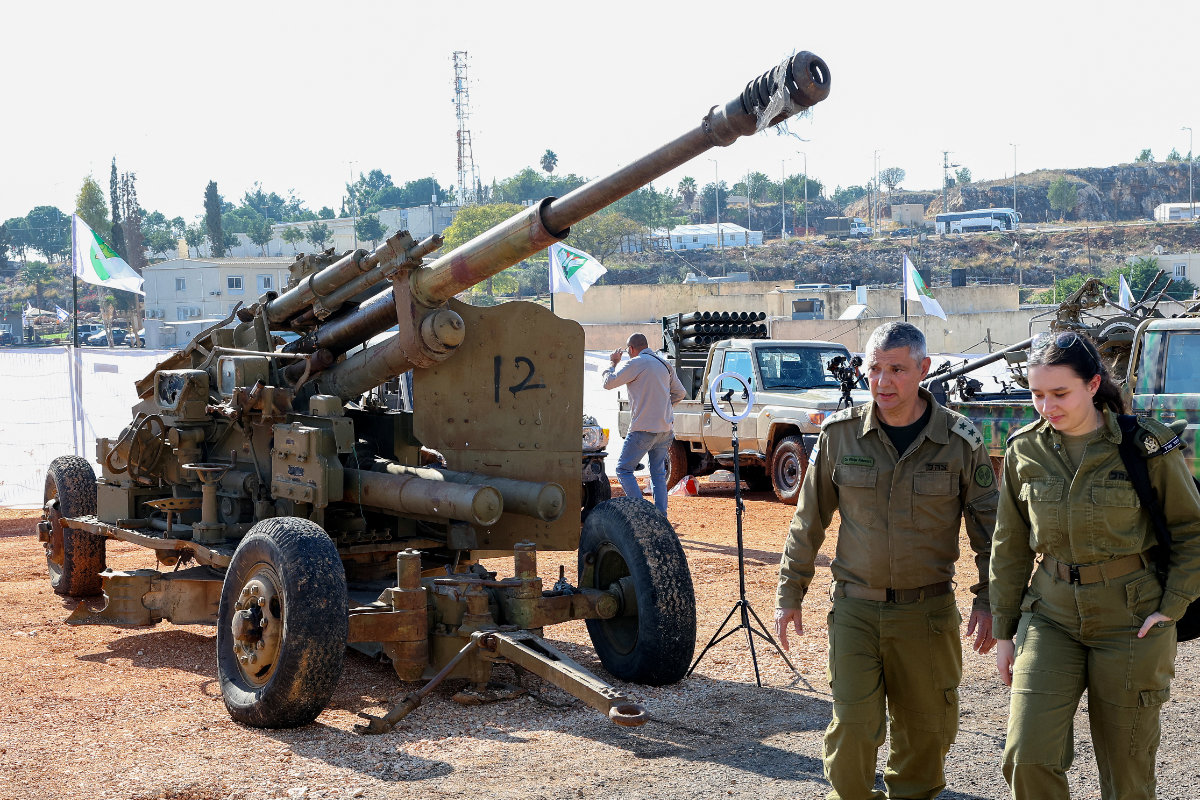
Israeli soldiers walks past weapons and other equipment captured from Hezbollah fighters in south Lebanon last year. (AFP)
However, this shift is unlikely to happen immediately, says Firas Modad, a Middle East analyst and founder of Modad Geopolitics.
“Hezbollah and its partners are seeking to show that they still retain significant domestic power and are acting to prevent any talk of the group disarming,” Modad told Arab News.
“They have used the Beirut airport, an international and very serious pressure point, to do so. Their excuse is that Lebanon has banned Iranian flights due to Israeli threats.
“However, it is worth noting that flights were banned even when Hezbollah itself controlled Lebanon’s Public Works and Transport Ministry.”
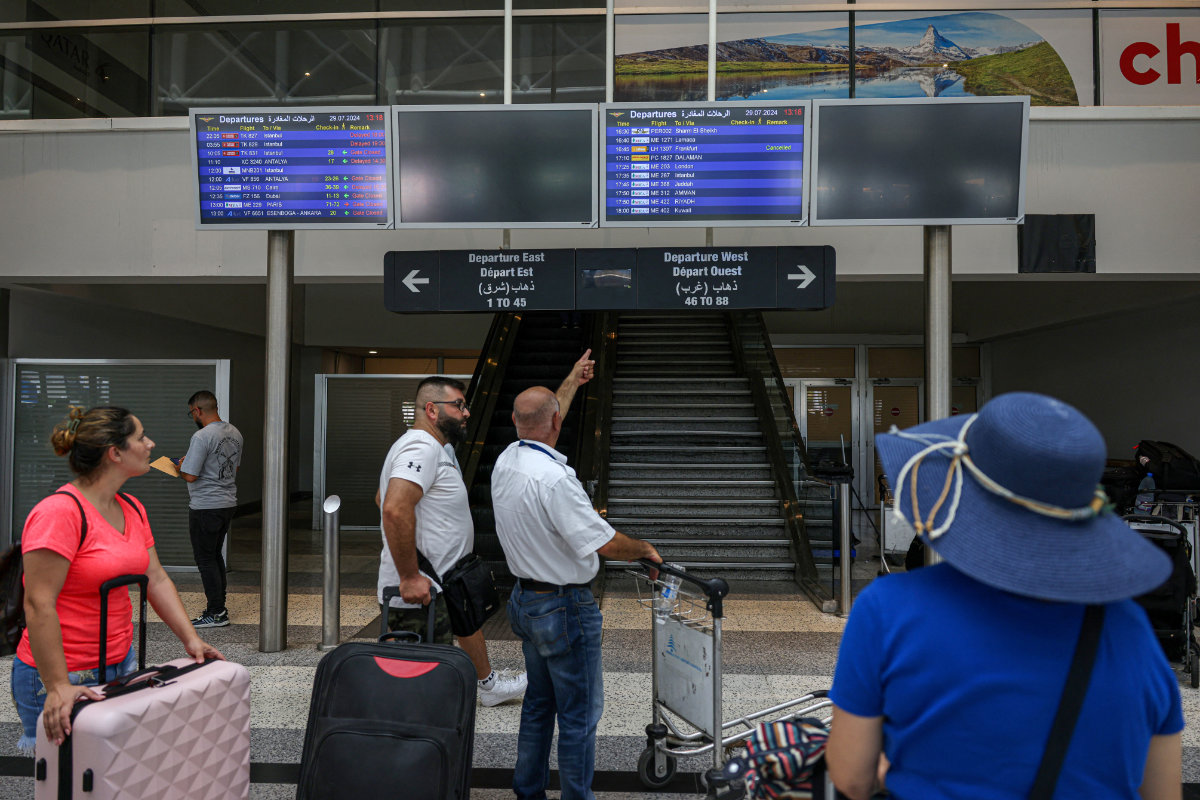
This photo taken on July 29, 2024, shows passengers looking at schedule flights screen at Beirut's Rafic Hariri International Airport after their flights were delayed or cancelled amid fighting between Hezbollah and Israeli forces. (AFP)
He added: “Iran and Hezbollah seem to have decided to pressure the new Lebanese authorities early on to ensure that the Shiites are not politically excluded.
“This is odd since the Shiite parties (Hezbollah and Amal) both got to choose ministers in the same way as all the other parties (were) represented in the new cabinet.”
While Lebanon’s new cabinet may appear to have sidelined Hezbollah, the group and its ally Amal, led by Berri, were allowed to name four of the 24 ministers, including Finance Minister Yassin Jaber — one of the government’s most coveted positions.
This came after Washington’s Deputy Middle East Envoy Morgan Ortagus said on Feb. 7, after meeting with President Joseph Aoun, that the US rejected the idea of Hezbollah participating in Lebanon’s government.

President Joseph Aoun (C) meeting with US deputy special envoy to the Middle East Morgan Ortagus (3rd-L) at the presidential palace in Baabda, east of Beirut, on Feb. 7, 2025. (Handout photo via AFP)
Modad believes “it is very likely that Lebanon will remain under severe international pressure and Israeli threats to stop Hezbollah from refinancing, funding reconstruction, and rearming.
“Hezbollah does not have the ability to confront Israel or the West in order to prevent this,” he added. “It is therefore targeting the weakest link, which is its domestic partners and rivals in Lebanon.”
Describing the tactic as “extremely reckless,” Modad said: “Hezbollah knows that it is risking a three-front war, against its domestic rivals, Israel, and Syrian jihadi militias.”
He added: “The rhetoric Hezbollah uses to justify its actions is that it is the state’s responsibility to both rebuild Lebanon and to confront Israel.
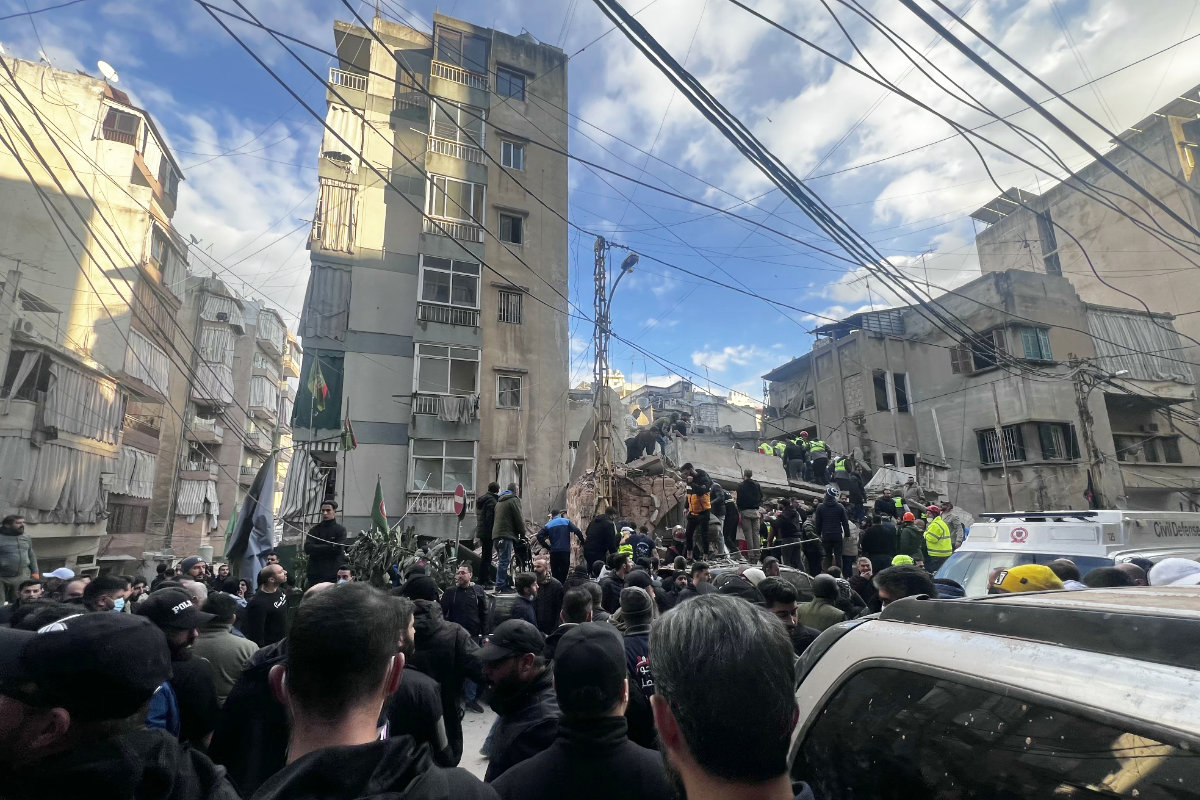
In this photo taken on November 26, 2024, Lebanese first responders arrive at the site of an Israeli airstrike that targeted a building in the capital Beirut, amid the war between Israel and Hezbollah. (AFP)
“Hezbollah knows full well that the Lebanese state has no such capability — neither to fund reconstruction nor to challenge Israel militarily. And if Israel attacks the airport, this could restart the war and lead to even greater damage.
“Simply, Hezbollah is risking an escalation that it cannot afford. It is wounded and therefore keen to show that it remains strong. This may bring about uncalculated conflicts that severely damage Lebanon — and Hezbollah.”
Echoing Modad’s view, Tashjian of the Issam Fares Institute said Lebanon is in no position to resist US demands.
“Lebanon’s resources, especially after the suicidal war, are limited,” he said. “Beirut therefore cannot resist any US pressure, especially given the regional changes and Iran’s reluctance to support its non-state allies.”
Lebanon, still suffering from a debilitating financial crisis that has gripped the country since 2019, was already crippled by years of economic decline, political paralysis, and other crises before Hezbollah’s war with Israel.
Moving forward, Tashjian believes “Lebanon needs proactive diplomacy.” This includes implementing Resolution 1701 and engaging with the US, while also working “with the Shiite leadership to ensure these policies do not isolate the community.”
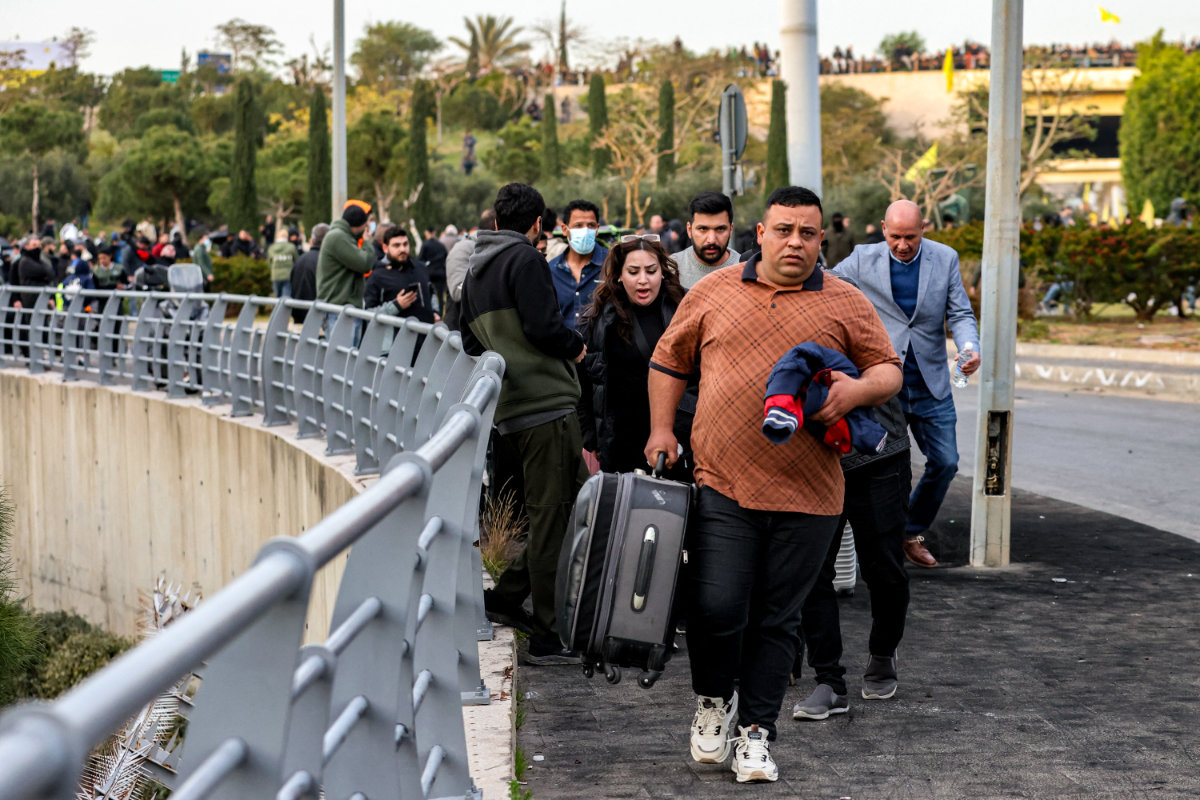
Travellers bound to fly from Beirut's international airport on Feb. 15, 2025 walk with their luggage as Hezbollah supporters block the road to the airport on February 15, 2025.(AFP)
Additionally, he suggests providing alternative solutions to address flight disruptions, such as engaging with Iran to operate flights by Lebanon’s national carrier — Middle East Airlines — or inspecting Iranian flights upon arrival in Beirut.
“A balanced foreign policy is needed to prevent any social and political explosion in Lebanon,” he said.
“Israeli military provocations and ceasefire violations continue, while Hezbollah struggles to grasp the postwar situation and convince its public that the country has entered a new era — one unlike the post-2006 war period.”




























